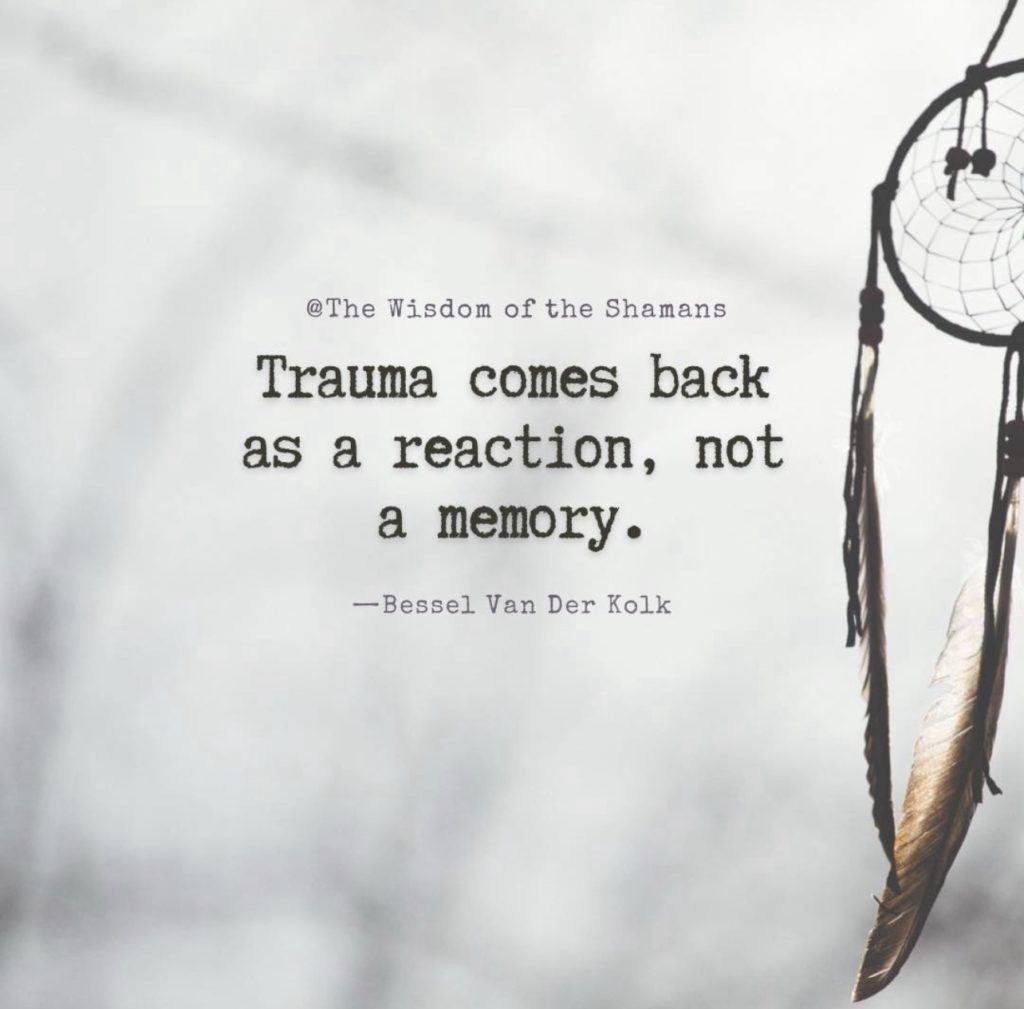Trauma, a complex and deeply personal experience, often lingers within us not merely as memories but as visceral reactions. Bessel Van Der Kolk, a preeminent thinker in the study of trauma, captures this succinctly: “Trauma comes back as a reaction, not as a memory.”
This statement highlights the nature of trauma’s return—it does not come back to us as clear-cut recollections that we can easily narrate or analyze. Instead, it re-emerges through our responses to triggers in the environment that may seem unrelated at first glance. These reactions can be emotional, such as sudden and intense anxiety or sadness; physical, like inexplicable pain or tension; or even behavioral, leading to changes in how we interact with the world around us.
Trauma’s grip is tight and often silent. It shapes the way we experience life, often without us even realizing why we feel or act a certain way. Understanding this helps us acknowledge that trauma is not something one simply moves past; it is something that integrates into the fabric of an individual’s being.
In a world that often values quick fixes and definitive solutions, it’s important to recognize that trauma defies such simplicity. It demands recognition, patience, and respect for the profound impact it has on human lives. Acknowledging the reality of trauma as a reaction rather than just a memory can be a crucial step in honoring our own experiences and those of others around us.





0 Comments